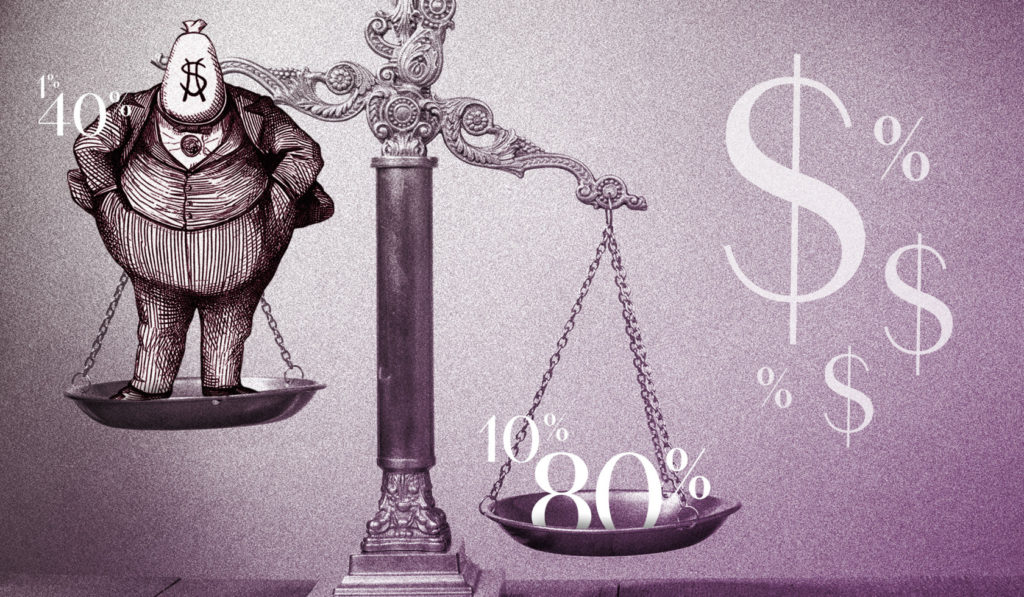Credit: Countable
Taxation has long been a point of contention within the United States. From the early days of our forefathers chanting “No taxation without representation,” to nearly 250 years later with demands that we pay our fair share, it seems the issue of taxes is one we will never solve.
But some think they have the solution: tax the wealthy more.

Credit: Longreads
In an open letter on Medium, Pay It Forward (an organization of millionaires and billionaires in support of a wealth tax) calls for all the 2020 presidential candidates to show their support for a tax on the richest one percent of Americans. They insist that the next dollar of tax revenue should come from the most financially fortunate, not the middle and lower-income Americans who can hardly afford it.
“America has a moral, ethical and economic responsibility to tax our wealth more. A wealth tax could help address the climate crisis, improve the economy, improve health outcomes, fairly create opportunity, and strengthen our democratic freedoms. Instituting a wealth tax is in the interest of our republic,” the organization states.
According to their research, a raised tax on the wealthiest of Americans is supported by Americans across the political spectrum, something unprecedented in our divided times. The idea supersedes party lines—many feel this sort of taxation is totally warranted.

Several candidates have expressed their support for this idea. Elizabeth Warren, Pete Buttigieg, Beto O’Rourke, and Tim Ryan have all included versions of their proposal into their platform. But as more and more of the wealthy express their support, it begs the question: is this wealth tax a form of philanthropic giving?
The revenue sustained through this proposed tax could, in theory, fund investments in clean energy, child care, student loan relief, and public health solutions to just name a few. Many of these programs are programs that, in one way or another, these millionaires and billionaires would already spend time raising funds or donating money to. In a way, this tax does that work for the wealthy.

Credit: Yes! Magazine
This tax would distribute money in the places we, as a country, need it most. The wealthy who support it are openly expressing their willingness to compensate the nation who already provided them so much. They are open to give back when they absolutely have no obligation to. In a way, would supporting this tax not be a philanthropic endeavor worth supporting?




